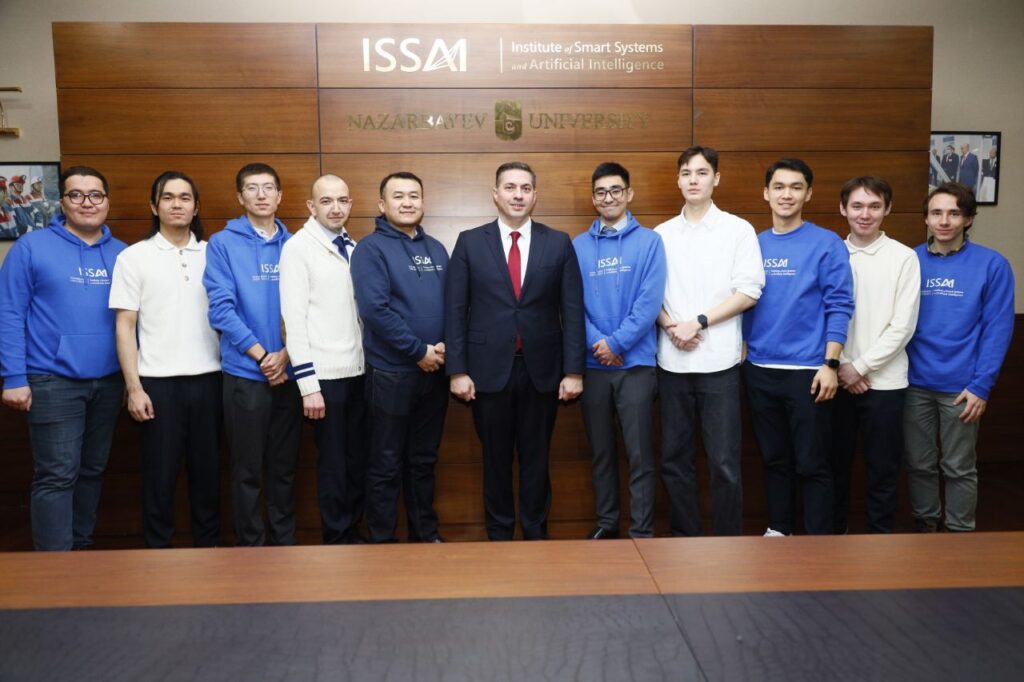Central Asia’s AI Pursuit: A Tale of Ambition and Progress
The term “rare earth metals” has become a buzzword in the modern geo-economic lexicon, popularized by U.S. President Donald Trump in contexts where American investments are expected. However, before that, “artificial intelligence” (AI) had already emerged as a global symbol of technological advancement and economic competitiveness. At least four of the five Central Asian republics have joined the race to implement AI technologies, though, until recently, two of them lacked the necessary prerequisites for such a leap. Kazakhstan Sets the Pace A key factor for the successful adoption of AI is the level of digitalization, an area in which Kazakhstan has made significant progress. The country’s digital transformation began with the banking sector and later expanded to public services, with nearly 100% of government services now available online. The COVID-19 pandemic accelerated this shift, making digital access to state institutions and banks a necessity. Since 2022, when AI became synonymous with technological leadership, exemplified by developments in China and the U.S., Kazakh President Kassym-Jomart Tokayev has actively promoted AI initiatives. In the summer of 2023, the government adopted the Concept for the Development of Artificial Intelligence for 2024-2029. During discussions on this initiative, officials reviewed measures already in place, such as Smart Data Ukimet, a centralized system integrating data from 93 government databases. Plans include deploying a supercomputer, expanding data processing centers, launching a national AI platform, and enhancing fiber-optic networks. Additionally, the Ministry of Science and Higher Education is working on a large language model (LLM) focused on the Kazakh language and cultural heritage. Prime Minister Olzhas Bektenov has set a clear goal: “By 2029, the number of AI-based products should increase fivefold. The share of educational programs related to AI must also expand. We need qualified specialists in this field, and it is crucial to consider the needs of domestic companies, which will have a multiplier effect on the economy.” Bektenov also emphasized the role of the National Center for AI in fostering youth involvement, developing human capital, and promoting AI culture. Furthermore, he instructed the Ministry of Justice to enhance legal frameworks for AI regulation. In December 2024, President Tokayev presented Kazakhstan’s first Kazakh language AI model, KazLLM, expressing satisfaction with its development: “We have taught artificial intelligence to think, analyze, and communicate in Kazakh. This achievement opens new prospects for our language in the digital sphere. We must build a Multimodal Language Model, capable of processing various data types simultaneously.” On March 3, 2025, Kazakhstan’s Mazhilis (lower house of parliament) reviewed a draft law, On Artificial Intelligence. If passed, it will be the world’s second AI law after the European AI Act. Uzbekistan's Ambitious Strategy Uzbekistan, another Central Asian country vying for AI leadership, has similarly prioritized digitalization. However, it lags slightly behind Kazakhstan in implementation speed. On October 14, 2024, Uzbekistan adopted its Strategy for the Development of Artificial Intelligence Technologies Until 2030, which outlines several ambitious targets: Increasing AI-driven software and services to $1.5 billion Expanding AI-powered government services on the Single Portal of...






